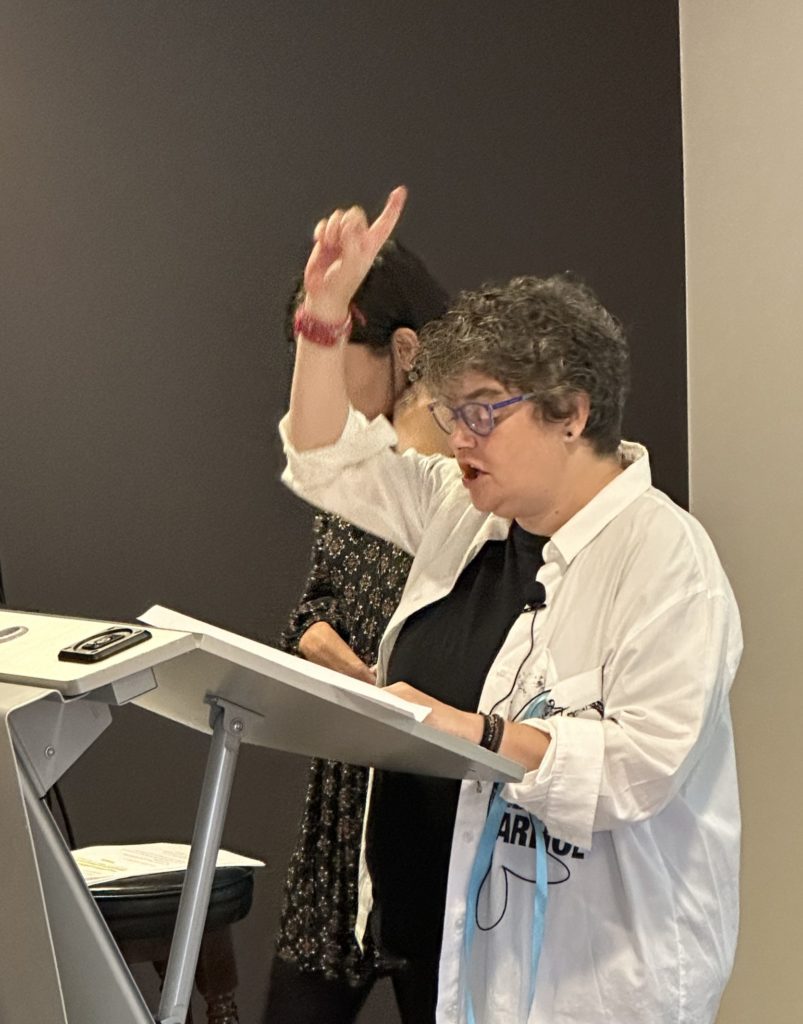- Which countries respect their rights to decide and to vote?
- How many people are segregated in “care” institutions?
- Do children with intellectual disabilities get proper education?
These are some of the questions our new Inclusion indicators report answers.
Join this discussion to learn what we found about 29 countries (23 from the EU).
29 November 2023 from 16:00 to 18:00 in the European Parliament, Brussels.
The event is hosted by MEPs Monica Semedo and Katrin Langensiepen.

Ana Martínez
About Inclusion indicators
Living in your own place. Having friends. Making your own choices. Being good at something. Belonging.
Most people take these things for granted. But for many people with intellectual disabilities and their families, they are not even a dream.
Governments mostly ignore people with intellectual disabilities and their families. This means not only they are limiting their rights. It also means there is not much data available about the situation of people with intellectual disabilities and families.
That is where Inclusion indicators come in.
Inclusion Indicators show how countries in Europe respect or limit the rights of people with intellectual disabilities and families.
Inclusion indicators score European countries on 7 key issues:
- Right to decide and right to vote
- Right to live independently and to be included in the community
- Housing and support
- Education
- Employment
- Healthcare
- Representation
Inclusion indicators are useful for anyone who wants to:
- Learn about the situation for people with intellectual disabilities and families in a specific European country;
- Compare different countries;
- See an overall picture of the situation in Europe.
Anyone can use the Inclusion indicators to call on their government and the European Union to respect rights of people with intellectual disabilities and families, and to improve their situation.
We collected this data for the first time in 2023.
We will repeat it every year, which means it will be possible to compare the development in a country (or several countries) over time.
29 November 2023 from 16:00 to 18:00 in the European Parliament, Brussels. Room SPAAK 1C47.
Registration closed.
With questions about the event, please contact Inge Volleberg at inge@inclusion.eu.





